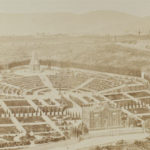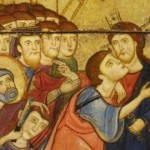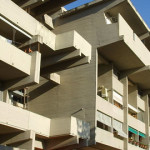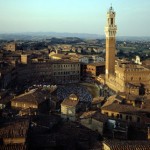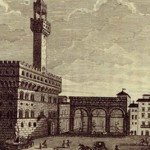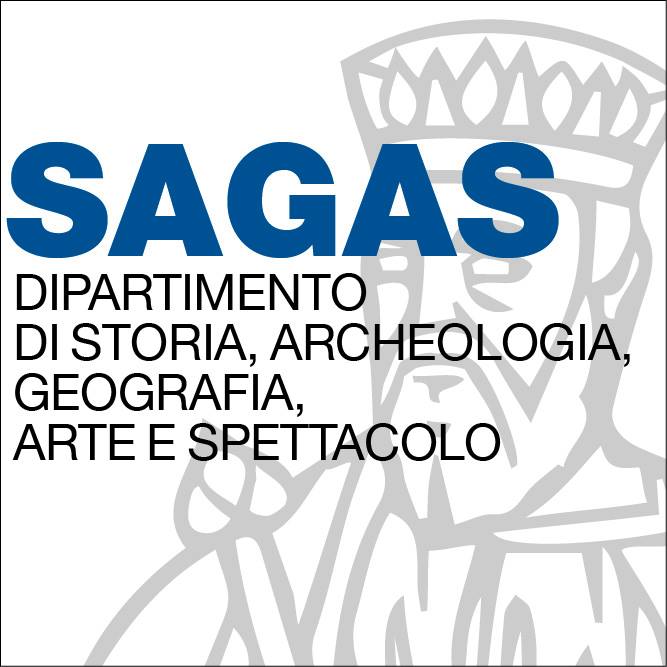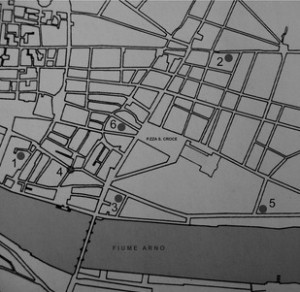Francesca Fantappiè
Il saggio approfondisce il funzionamento delle accademie teatrali fiorentine a cavallo tra XVII e XVIII secolo sotto più punti di vista: localizzazione dei teatri, repertorio e circolazione degli interpreti, aspetti di amministrazione economica, rapporti con il potere e, nella fattispecie, con la dinastia medicea. emerge
la concentrazione nel quartiere di Santa Croce di Firenze di una buona parte delle accademie di dilettanti, che per alcuni decenni offrono una produzione drammaturgica alternativa a quella del teatro degli attori professionisti, esclusi dal mercato fiorentino nell’ultima fase medicea. Sulle motivazioni di questo fenomeno sono qui proposte ipotesi alternative alla vulgata storiografica che vede in questi anni il nadir culturale nella storia del Granducato e della famiglia al potere. Ci si sofferma, inoltre, sul problema di una possibile definizione di sistema teatrale fiorentino, con particolare attenzione alla disanima dei primi tentativi di adozione di un modello impresariale nel teatro in musica.
Florentine Theatrical Academies in the Santa Croce District Between the 17th and 18th Centuries: Amateur Actors Gambling and the First Attempts at Entrepreneurship
This essay examines how theatrical academies in Florence used to function between the 17th and 18th century from a number of different points of view: the location of the theatres, their repertoires and how actors circulated, their economic administrations, their relationships with the powers of the times and – in particular – with the Medici dynasty. A concentration of a goodly part of amateur academies in the Santa Croce district in Florence emerges from this study. For a few decades, these offered drama productions as an alternative to the theatre and its professional actors, which were excluded from the Florentine market in the last part of the Medici period. A number of different hypothesis providing a different
approach compared to the vulgata of historiography which sees these years as the cultural nadir of the history of the Grand Duchy and of its powerful family have been put forth to explain the reasons behind this phenomenon. Furthermore, the problem of a possible definition of the theatrical system in Florence is also explored, taking particular care over the disheartenment of the first attempts which were made to adopt entrepreneurial models for musical theatres.
Francesca Fantappiè ha conseguito il dottorato in Storia del Teatro e dello Spettacolo all’Università di Firenze con la tesi «Un garbato fratello et un garbato zio». Teatri, cantanti, protettori e impresari nell’epistolario di Francesco Maria Medici (1680-1711). Ha concluso un secondo dottorato in Discipline Filosofiche, Discipline Artistiche, Teatrali e Cinematografiche presso l’Università Cattolica di Milano con la tesi I teatri di Bergamo sotto il dominio veneto (secc. XVII-XVIII). Ha collaborato al Progetto Herla della Fondazione Mantova Capitale Europea dello Spettacolo e collabora al Progetto AMAtI (Archivio Multimediale degli Attori Italiani). Pubblicazioni: La celebrazione memorabile: potere arte e spettacolo nelle memorie di corte di Ferdinando I Medici, «Arte, musica e spettacolo», II (2001), pp. 203-240; Il teatro di Corso Tintori: l’edificio e le accademie (1673- 1850), «Medioevo e Rinascimento», XII (2001), pp. 241-274; Sale per lo spettacolo a Pitti (1600-1650), in S. Bertelli, R. Pasta (a cura di), Vivere a Pitti: una reggia dai Medici ai Savoia, Firenze, Olschki, 2003, pp. 135-180.
Download Pdf
Download


